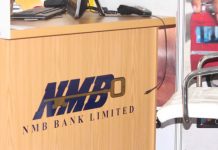HARARE – Listed construction and industrial group, Masimba Holdings Limited widened its profit for the six months to June thanks to a strong order book in mining, infrastructure and roads segments. Due to a diversified project portfolio, group revenue earned in United States dollars improved to 55% from 35% previously as a proportion of the total revenue.
The Group has a firm diversified order book valued at USD145 million (2021: USD83 million) with tenures of between 3 to 18 months.
In its interim results statement, group revenue was up 242% in historical terms to $ 7.053 billion from $ 2.061 billion as the group’s diversification strategy paid off also taking advantage of various construction projects taking place across the country. The group has since managed to improve its operational and cost efficiencies which led to operating profit of $ 6.36 billion, which is 1252% up from 470.18 million comparative period prior year which it also attributed to exchange gains emanating from a net foreign currency asset position and fair value adjustment on investment properties.
As a result, a profit before tax of $ 6.31 billion was achieved, 1300% ahead of prior year levels of $450.8 million. The group is however wary of the local challenges being compounded by the Russia – Ukraine conflict which has resulted in imported inflation on the back of disruptions in supply chain, in particular energy and grain. In its trading update for the Q1, Masimba said the continued conflict in Ukraine has affected supply chains and pricing of key construction material which include steel, fuel and bituminous products that it uses in its infrastructure projects.
On the balance sheet, total assets grew 146% to $ 28.1 billion from $ 11.4 billion. Current assets exceeded current liabilities by $ 1.86 billion to give a commendable current ratio of 1.22. Total equity of $ 15.61 billion was 365% ahead of previous year of $ 3.36 billion due to the strong profitability. The group is however concerned that the strong order book execution may be hampered by pricing distortions emanating from an inefficient foreign currency allocation system and prevailing hyperinflation. Cash from operations was up 218% to $ 861.37 million from $ 270.92 million with a poor cash flow ratio of 0.10 which indicates the group’s short-term cash flow problems. As a result, the group did not declare an interim dividend having evaluated the cashflow associated with the growing order book, deteriorating cash flow cycle coupled with the need to strengthen capacity. The group has short-term loans of $ 124.8 million with a tenor of between three to six months and accrues interest at an effective rate of 200% per annum.
















